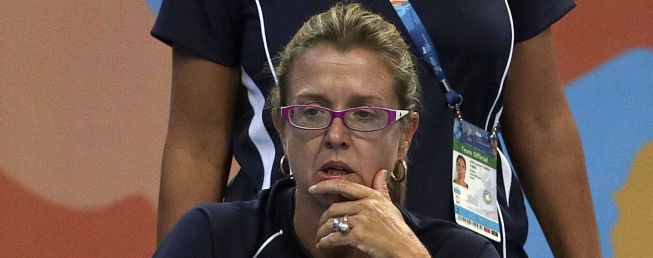How are you experiencing this World Championship as an advisor for France?
I am once again experiencing the competition and being a part of the synchronized swimming circle. I am very happy. I took care of the technical team's choreography and I think we made a turning point, with faster movements and improved artistry. The girls are not professionals and they don't have any assistance. They only practice together for ten hours a week. Considering what we work with, the result is good.
Have the scoring criteria changed so much since 2013?
Yes, and that's why Japan is on top. Execution and technique are now more important elements. They have focused on precision, bringing back the coach they had during the medal-winning years.
Is synchronized swimming entering a new international order?
Yes. The power of the Olympics has pushed Japan back to the top. And synchronized swimming is such a minority sport that either you are in the medals or you don't exist.
How do you see the decline of Spain and what do you attribute it to?
The level of execution and perfection in the choreographies has decreased. They have tried to achieve results with a different style and it hasn't worked. Maybe this training model is not ideal.
Is the youth of the group the explanation?
You can look for explanations. But Russia and China also make changes and they are still there. In 2007, China was fifth and the following year they won medals at the Olympics. The best year of my career was 2009, in Rome, when I truly saw that we were a professional team of women. We savored the competition and the miracle of the gold in the combo event. That is achieved when you believe in dreams. Then we changed many members of the team and we didn't compete again until 2011, where we held our ground. We must find the best strategy and way of managing it to make these kinds of transitions.
If you were assigned a study on the decline of Spain, what solutions would you propose?
We need to go back to working the way we used to. We must take great care of each swimmer's individual quality and innovate. The strategy should not be to imitate but to try to find new talent to develop. Mexico, for example in this championship, is putting on a show in the water, and the judges take note of this innovation. Spain had a quality team, but when it comes to making decisions, the difference lies in experience: if you have it, you can change a situation.
How do you feel about Ona not swimming in the team events?
A team like Spain cannot afford luxuries. Only Russia does it and that's because any of their swimmers would be the best. Spain is not selecting the best for the team events. It is necessary to have a leader who sets an example. Gemma passed the baton to Andrea and she to Ona, but what about after that?
What do you think of the duet and the changes made in search of the ideal partner for Ona?
I would have bet on another swimmer. I think it's hasty to decide to try out another pair one year before the Olympics. If it doesn't work out, you pay a high price. It's easy to go down, but going up... In synchronized swimming, the one who trains more and better always wins. The Japanese cried when they won the medal. When you achieve results, the effort is worth it and a new motivation arises. The best way to solve problems is through self-criticism.
Have you been paid by the Spanish Federation yet?
No.

